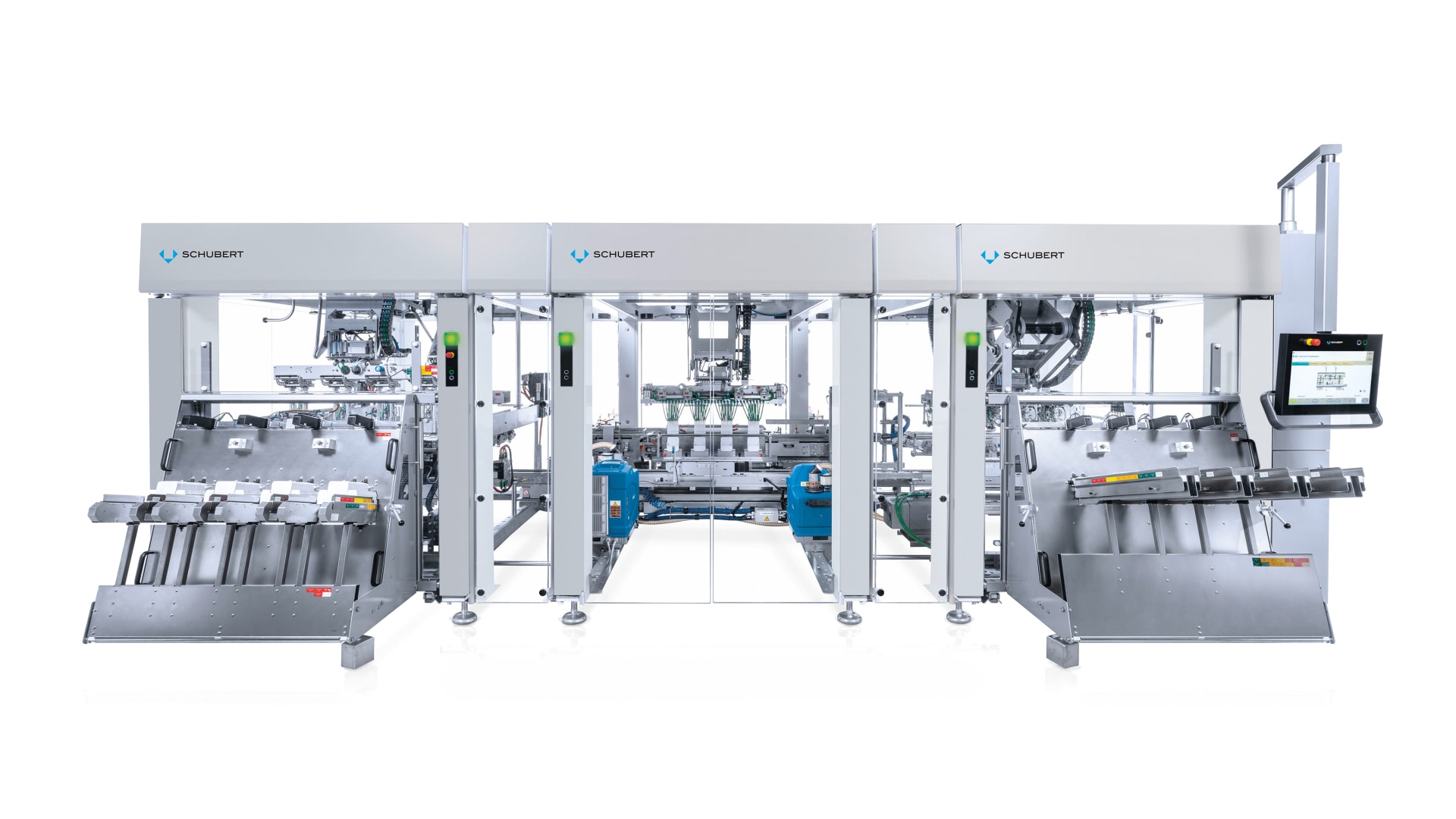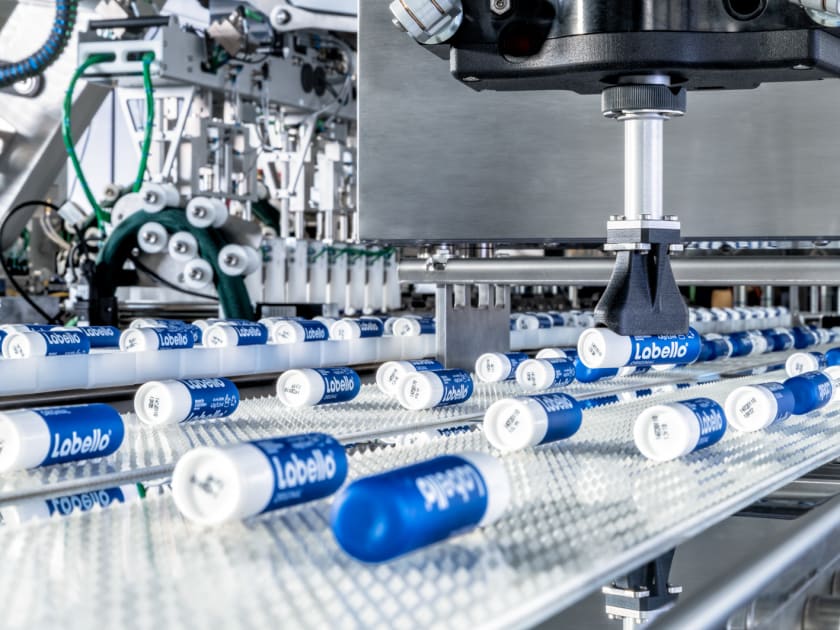Safe, reliable handling of product and packaging
In the first frame of the packaging machine, three robots erect flat blanks into complex folding cartons: An F3 robot unstacks four blanks at a time from the magazine during each cycle and transfers them to an F2 robot. This F2 robot then positions the flat blanks for erecting and passes them through the box-folding frames. The four erected boxes are then withdrawn from the folding frames by a further F2 robot and placed onto a Transmodul.
While robots fold the blanks, the film-wrapped tampons are fed to the line in two lanes. Between production and the packaging machine, two centrifuges take care of separating the unsorted tampons. Via two grouping chains, the personal care products arrive at the filling station lying flat and correctly aligned. Regardless of the size and type of tampons, the filling robot always uses the same suction tool in the second frame – this considerably reduces the effort required for format changes. For filling, the robot picks up 32 tampons, re-pitchesthem together into groups of eight and then places them into the boxes layer by layer, alternating between the two grouping chains.
Once the boxes have been filled, the customers instructions for use are added to each package in the third frame and then the boxes are sealed. Three robots carry out the complex process: An F3 robot removes four information leaflets from a magazine at a time and transfers them to an F2 robot, which places them into the boxes. Afterwards, the same F2 robot assists in closing the lids: It uses suction cups to pull the front of each pack slightly forward so that another F2 robot can insert the lids of the boxes. This ensures that each box is closed properly before they leave the machine.
- Output of 930 products per minute
- 12 different formats
- Efficiency of 97 per cent
- One filling tool for all formats
- Transmodul in use







